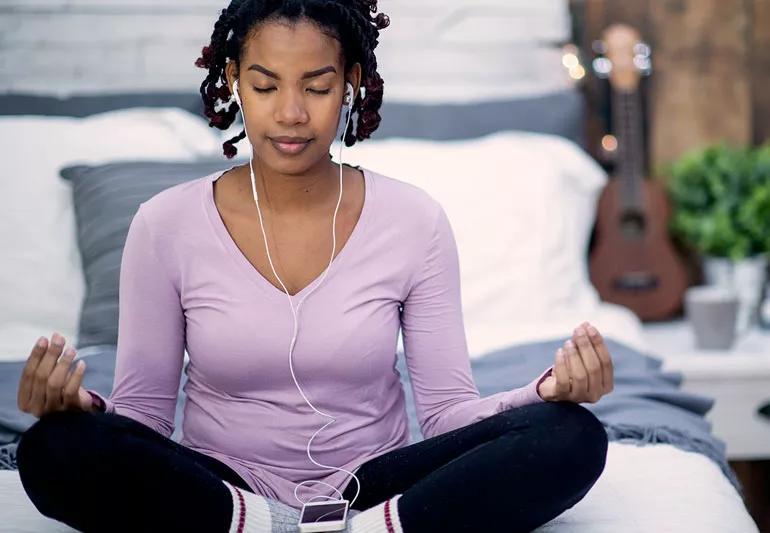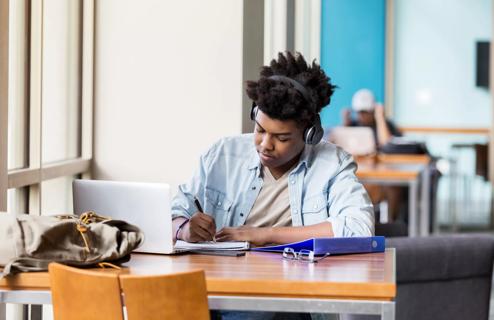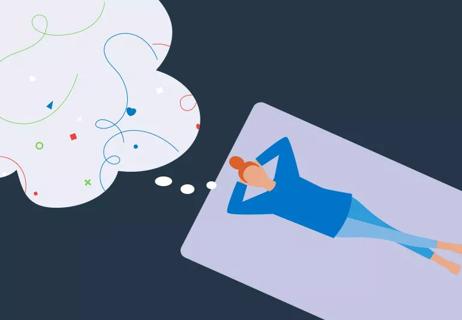Tools to calm, increase mindfulness

It’s no secret that the coronavirus pandemic has been difficult for many people, but teens are one group dealing with their own set of struggles during this time. With so many traditional high school activities postponed or canceled, including in-person classes for many schools, it can be challenging to help your teenager cope.
Advertisement
Cleveland Clinic is a non-profit academic medical center. Advertising on our site helps support our mission. We do not endorse non-Cleveland Clinic products or services. Policy
Teens can sometimes be impulsive and angst-ridden even during the best of times. Behavioral health therapist Jane Ehrman, MEd, explains why teenagers can be this way, and offers ideas about how meditation can help your teen deal with stress and anxiety during this uncertain time.
A: The amygdala (in the brain) is part of our survival mechanism. It’s always looking out for what is going to hurt us. If you’re dealing with anxiety or past trauma, the amygdala can be more reactive to stress.
During the teen years, the frontal lobe of the brain — which helps make good decisions — isn’t always communicating well with the amygdala, which responds immediately and instinctively to triggers. At this age, the pathway in the brain between the amygdala and frontal lobe isn’t as strong. But Ehrman says, through meditation, the brain will rewire.
“With 15 minutes of daily meditation for at least three weeks, the brain becomes more responsive and less reactive — which can be especially helpful to teens prone to anxiety or erratic behavior,” she says.
A: Yes. The practice of mindfulness exercises such as meditation will improve focus and concentration so teens can focus on homework and perform better on exams. Meditation can also help with self-esteem and memory, reduce high blood pressure and heart rate, and help balance the immune system.
Advertisement
A: It can be daunting to know how to help your teen begin a meditation program. Start with a simple two to five minutes of meditation. Here are some steps to follow:
A: No. Your mind is always thinking.
It’s like when you’re riding a bike past all kinds of things. You don’t stop and look at everything that goes by. You bring your focus back to staying on the path or trail. The same is true for meditation. Some thoughts will catch your attention while you’re meditating and others won’t. When something does, acknowledge it, and then redirect the focus back to your breathing.
A: They can start small with four to five minutes of meditation, with the goal of advancing to 15 minutes, once a day, four to five times a week. If they can accomplish this, it eventually begins rewiring their brain — often in about three weeks.
A: Yes. If your teen is uncomfortable attempting to meditate with you, this can be especially handy! There are many apps available on your smartphone or tablet, such as Calm or Headspace, that your teen can sample for free. The Cleveland Clinic also has a free app called Mindful Moments.
You also can use your phone as a timer for meditation.
Your teenager may react with skepticism at first when you suggest meditation. But, with all the uncertainty in the world right now, teens can definitely benefit from taking time to quiet the noise and meditate. It’s a handy practice that can help them through all kinds of confusing and stressful situations in life.
Advertisement

Sign up for our Health Essentials emails for expert guidance on nutrition, fitness, sleep, skin care and more.
Learn more about our editorial process.
Advertisement

Breathing, exercise, mindfulness and more can help you unwind and step away from your stress

From breath meditation to yoga nidra, all types of meditation aim to help you feel calmer, more relaxed and present

Sensory deprivation therapy can help relieve stress, improve sleep and decrease physical pain

You don’t need to have years of experience to reap the rewards of meditation — with benefits for your whole body, you only need a couple minutes to get started

While walking, be mindful of your body, your mind, your place in the world and all five of your senses as you pave a path forward, one step at a time

Thunder, waterfalls and heavy rain — these low-frequency sounds might help cancel out disruptive noises and thoughts

Immersing yourself in nature can improve both your mental and physical health

This bedtime exercise can help you fall asleep faster (and stay asleep)

Even small moments of time outdoors can help reduce stress, boost mood and restore a sense of calm

A correct prescription helps your eyes see clearly — but as natural changes occur, you may need stronger or different eyeglasses

Both are medical emergencies, but they are very distinct events with different causes